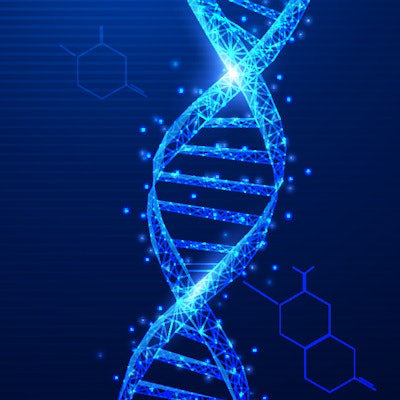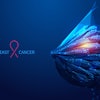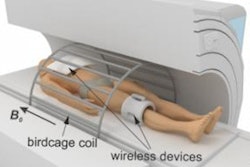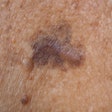
It is crucial for breast imaging professionals to recognize patients with an increased risk for hereditary breast cancer who could benefit from genetic testing, according to an article published on May 29 in Radiographics.
Often, radiologists are some of the first health professionals to discuss genetic counseling with at-risk women and men, the authors noted. Breast imagers are also pivotal for reading screening mammography and breast MRI scans from patients with genetic mutations who can develop hereditary breast cancers that mimic the features of benign imaging findings.
"Commercial genetic testing panels have gained popularity and have become more affordable in recent years," wrote the authors, led by Dr. Puja Bharucha from the department of diagnostic radiology and nuclear medicine at the University of Maryland School of Medicine. "Therefore, it is imperative for radiologists to be able to provide counseling to identify those patients who should be referred for genetic testing."
The first step to identifying individuals who may benefit from genetic counseling is to conduct a risk assessment, the authors noted. There are multiple models that radiologists can use to help determine a patient's breast cancer risk, including the Gail model, Tyrer-Cuzick model, and BRCA mutation probability models (BRCAPRO, BOADICEA). Each model looks at different risk factors and has its own strengths/limitations, and no one model will work for all patients.
| Patient risk factors incorporated in breast cancer risk assessment models | ||||
| Gail | BRCAPRO | BOADICEA | Tyrer-Cuzick | |
| Age | ✓ | ✓ | ✓ | ✓ |
| Age at first birth | ✓ | ✓ | ||
| Atypical ductal hyperplasia | ✓ | ✓ | ||
| Breast density | ✓ | |||
| Breast cancer in first-degree relative | ✓ | ✓ | ✓ | ✓ |
| Male breast cancer | ✓ | ✓ | ✓ | |
Once a risk assessment has been performed, radiologists can refer patients with an increased risk of hereditary breast cancer to a genetic counselor. Genetic testing can yield four results:
- Positive: A patient tests positive for a gene mutation known to cause increased cancer risk
- True negative: A patient from a family with known genetic mutations tests negative for a gene mutation
- Uninformative negative: A patient from a family without a known history of genetic mutation tests negative for a gene mutation
- Unknown significance: A patient tests positive for a rare genetic mutation with an unknown risk for breast cancer
BCRA1 and BCRA2 and among the most common genetic mutations related to breast cancer. As many as 65% of women with a BRCA1 mutation and 45% of women with a BRCA2 mutation will develop breast cancer, the authors noted. In addition, BRCA mutation carriers are more likely to develop breast cancer at a younger age (40 years old with BRCA mutation vs 61 years old without one).
"Owing to the significantly elevated risk in BCRA mutation carriers, the National Comprehensive Cancer Network (NCCN) recommends annual breast MRI or mammography (if MRI is not available) starting at age 25-29 years old," the authors wrote. "Annual mammography combined with breast MRI is recommended from age 30 to 75 years."
Alternating mammography and breast MRI every six months may help radiologists catch aggressive cancers early in women with a BCRA or other genetic mutation, the authors added. As for men, the evidence is limited, but the NCCN recommends performing clinical breast examinations in high-risk men every six to 12 months. The authors also cautioned that hereditary breast cancer can have unique appearances on imaging and can even resemble benign findings.
While genetic testing can help identify patients that may benefit from additional screening, the process can be costly, and insurance coverage for genetic testing varies by insurer and may have restrictive qualifications, the authors noted. Some patients may also worry genetic test results could affect their qualifications for life and long-term care insurance.
"Radiologists should be able to provide patients with an idea of what to expect when they are referred for genetic counseling, which involves a detailed risk assessment that often requires an extensive family history review," the authors concluded. "Patients should know that it is possible that testing may give uninformative results or genetic variants of unknown clinical significance."



















